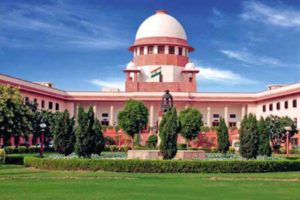
Source: www.supremecourtofindia.nic.in
Introduction:
A commendably detailed account of the malpractices and serious violations by the miners in Odisha was made by the Hon’ble Supreme Court of India in the case of
Common Cause v. Union of India and Ors.[1] in August 2017. A Centrally Empowered Committee was appointed in 2009 for examining the conditions and practices adopted in the mining organizations and their public regulators in the State of Odisha.
In its detailed report, the Centrally Empowered Committee (hereinafter referred to as the ‘CEC’), it was stated that out of 187 iron and manganese ore mining companies, 102 did not have the requisite environmental clearance (under the Environment (Protection) Act, 1986) or approval under the Forest (Conservation) Act, 1980 or approved mining plan and/or Consent to Operate under the provisions of the Air (Prevention and Control of Pollution) Act, 1981 or the Water (Prevention and Control of Pollution) Act, 1981. The judgement has mentioned without exception each and every form of illegal mining practice and vociferously condemned the illegal and untrustworthy practices being adopted by the giant mining organizations in Odisha. In addition to this, the CEC report had retraced many other
‘frightening figures’.
In its final report dated April 25, 2014 the CEC dealt with the following topics:
- Production of iron ore and manganese ore without/in excess of the environmental clearance/Mining Plan/Consent to Operate.
- Mining leases operated/acquired in violation of the Forest (Conservation) Act, 1980 and the Mines and Minerals (Development and Regulation) Act, 1957
- Illegal mining outside the sanctioned mining lease areas and massive illegal mining in Uliburu Forest land.
- Violation of the Mineral Concession Rules, 1960 by the lessees.
- Inordinate delays in taking decisions by the State Government regarding renewal of the mining leases.
Imposing a penalty of 100% recovery of the prices, rent, royalty or taxes etc. of the illegally mined ore, upon the defaulting miners the Court held that,
“If there has been illegal mining, the defaulting lessee must bear the consequences of the illegality and not be benefited by pocketing 70% of the illegally mined ore. It simply does not stand to reason why the State should be compelled to forego what is its due from the exploitation of a natural resource and on the contrary be a party in filling the coffers of defaulting lessees in an ill gotten manner.”
The deadline imposed for depositing the compensation was held to be December 31, 2017. A total of INR 19174.38 crores was due from to be deposited 131 mining lease holders. In its recent order dated January 30, 2018 , the Hon’ble Court expressed immense dissatisfaction towards the steps taken by the mining organization in depositing the penalty amount as it observed that the cumulative total amount of penalties imposed by the Supreme Court, only a little more that 50% had been recovered. In view of the same, the Court directed the State of Odisha to take coercive actions to recover the said amount.
Take Away:
We peculiarly observe that giant organizations like mining corporations can never be fined ‘too much’. These organizations can never be caught by financial set-backs. Will penalties serve as a ticket to further indiscriminate mining is a question that stand unanswered.
Morally, can one be compensated for breathing contaminated air? And Legally, can one
waiver off his fundamental rights to free and pure air, for some industrial activity. Since both the questions are answered in negative, we ask a third one: How far will the polluter’s pay principle work if the polluters are always ready to pay?

